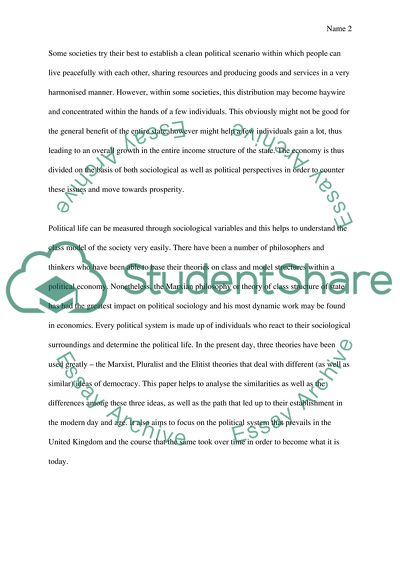Cite this document
(Overview of Political Theories Essay Example | Topics and Well Written Essays - 2000 words, n.d.)
Overview of Political Theories Essay Example | Topics and Well Written Essays - 2000 words. https://studentshare.org/politics/1764551-compare-and-contrast-marxist-pluralist-and-elitist-theories-of-democracy
Overview of Political Theories Essay Example | Topics and Well Written Essays - 2000 words. https://studentshare.org/politics/1764551-compare-and-contrast-marxist-pluralist-and-elitist-theories-of-democracy
(Overview of Political Theories Essay Example | Topics and Well Written Essays - 2000 Words)
Overview of Political Theories Essay Example | Topics and Well Written Essays - 2000 Words. https://studentshare.org/politics/1764551-compare-and-contrast-marxist-pluralist-and-elitist-theories-of-democracy.
Overview of Political Theories Essay Example | Topics and Well Written Essays - 2000 Words. https://studentshare.org/politics/1764551-compare-and-contrast-marxist-pluralist-and-elitist-theories-of-democracy.
“Overview of Political Theories Essay Example | Topics and Well Written Essays - 2000 Words”. https://studentshare.org/politics/1764551-compare-and-contrast-marxist-pluralist-and-elitist-theories-of-democracy.


